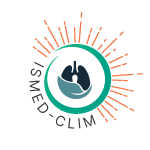Living Lab 5: Co-Designing Climate Information Services for Health Systems

Access to timely and relevant climate information is essential for managing health risks linked to rising temperatures, changing air quality, and extreme weather. Living Lab 5 (LL5) focuses on developing and testing climate information services (CIS) that support public health decision-making in the Mediterranean.
Where is it happening?
This Living Lab takes place in:
-
Cyprus, through collaboration with the Ministry of Health and the Health Insurance Organisation (HIO)
-
Italy, in cooperation with the Department of Epidemiology of the Lazio Region (DEP LAZIO)
Both sites bring institutional knowledge, data systems, and real operational needs into the co-design process.
What is the goal?
The goal of LL5 is to design climate services tailored for the health sector. These services aim to help public health actors prepare for and respond to climate-related health threats such as heatwaves, air pollution episodes, and vector-borne disease outbreaks.
What will be tested?
Living Lab 5 focuses on:
-
Identifying priority use cases for climate-health information based on stakeholder needs
-
Co-developing early warning indicators and visualisation tools
-
Linking climate data with health data to support routine surveillance and decision-making
-
Testing the integration of climate services into existing health workflows
Health professionals, epidemiologists, and public officials are directly involved in the design process to ensure the tools are practical and aligned with real needs.
Why it matters
Despite the growing relevance of climate change to health outcomes, climate services are often developed without direct involvement from health authorities. LL5 addresses this gap by working with institutions to co-produce services that are useful, trusted, and applicable in day-to-day decision-making.
This Living Lab builds on existing technical capacities in Cyprus and Italy while developing models that can be adapted elsewhere.
To follow updates from Living Lab 5 and the broader ISMED-CLIM project, visit our website.
